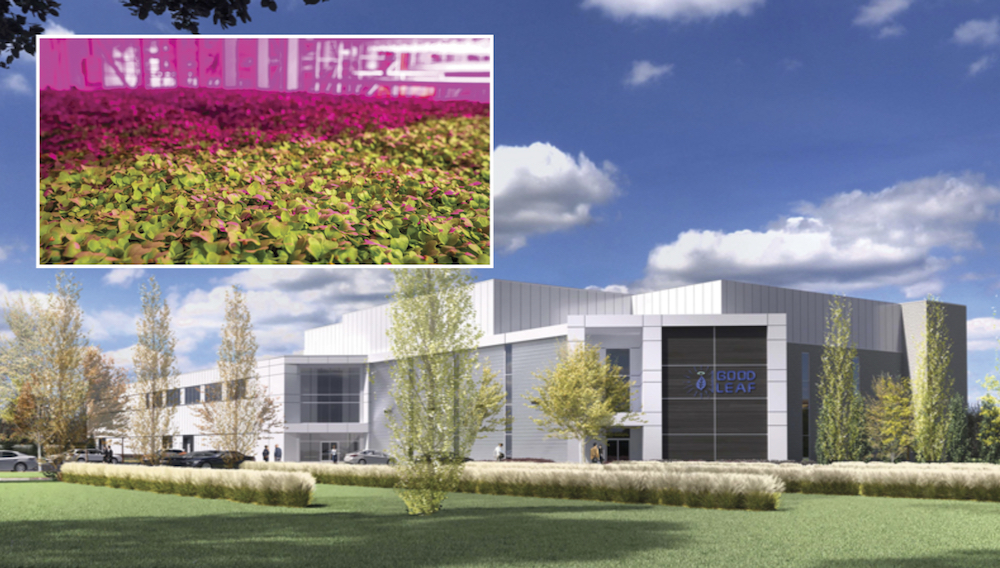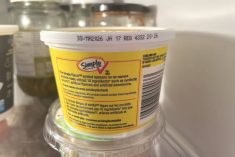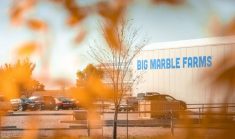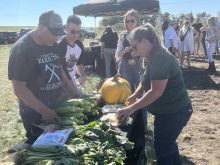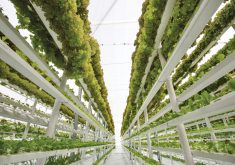An indoor mega-farm set to produce microgreens and baby greens just got even more mega.
The facility that will house the “vertical farm” now under construction in southeast Calgary isn’t getting bigger but the growing space inside is jumping to 100,000 square feet from 74,000 previously.
“We found, through further engineering, ways of further squeezing more grow capacity under the same footprint,” said Barrie Murchie, CEO of GoodLeaf Farms.
Read Also
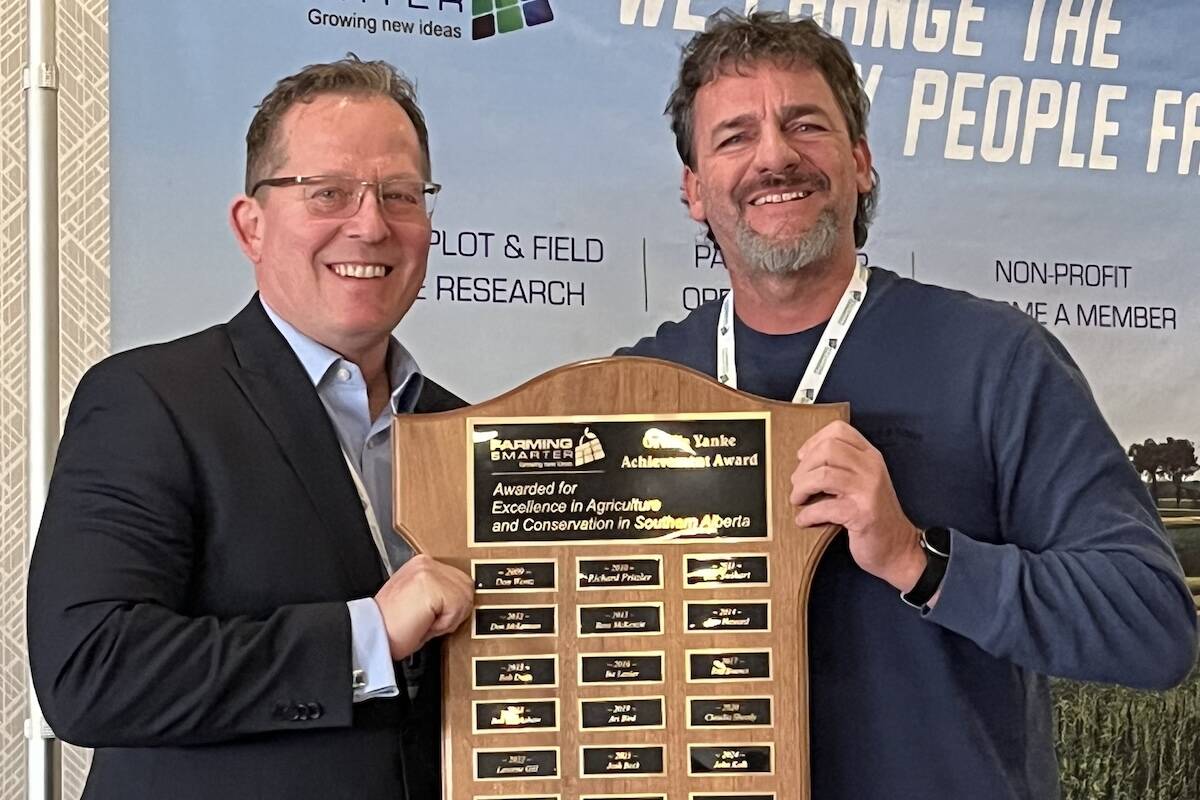
Half a million plots and a lifetime of impact: Dr. Brian Beres wins Orville Yanke Award
The renowned Alberta scientist celebrated three decades of agricultural innovation and the pioneering of the GEM framework at the 2026 Farming Smarter Conference.
The operation will now be able to produce nearly two million pounds of veggies per year, which is double the original estimate.
“We have the technology and are expanding the capacity to grow the food Canadians need right here in Canada, no matter the season and no matter the weather,” said Murchie, pointing to California, where flooding is affecting production.
“Continued investment and support for agricultural innovation and technology can help Canada avoid future food shortages like the one it is currently experiencing with lettuce and leafy greens.”
The project is expected to create 50 to 70 jobs, some of which have already been filled, he said.
“(We’re looking for) skilled positions in farm management, horticulture, farm engineering, millwrights, people that work the automation going on within the farm, as well as a full complement of hourly staff on the operations portion of the business.”
The farm’s location in an industrial park on 108 Avenue SE is intended to place it as close to food distribution centres in Calgary as possible, said Murchie. It plans to start test-growing in early June.
“We anticipate we will have commercial product come available in early August.”
Thanks to heavy backing from McCain Foods, GoodLeaf is building another vertical farm in Montreal, similar in size to the Calgary facility and double the size of the company’s existing flagship facility in Guelph, Ont. McCain Foods is backing the GoodLeaf projects through a $65 million investment in TruLeaf, GoodLeaf’s parent company.
The Montreal plant will also be able to produce 1.9 million pounds of microgreens (vegetables and herbs harvested at the seedling stage) and baby greens.
Taken down to its raw essentials, a vertical farming operation is akin to a very large greenhouse but without the dependence on sunlight, outside temperatures and seasons that affect greenhouses and open-field farming.
“You can grow without use of any pesticides, herbicides or fungicides,” said Murchie. “Open-field farmers are trying to solve two of Mother Nature’s biggest challenges (with their varieties): drought resistance and pest resistance. Neither of those factors are relevant in a vertical farming environment.”
In fact, these crops can be grown minus virtually any of the limitations imposed by nature, he said.
“We’re able to select the inputs, the germination time, the temperature, the humidity, CO2 levels, the optimal light recipe, the optimal irrigation cycle and nutrient load — all of those are optimized without Mother Nature’s variability impacting the crops whatsoever.”
GoodLeaf’s biggest goal is to create a domestic supply of these vegetables to reduce the risk of importing them from the few regions in North America that produce them.
“In Canada, 80 to 90 per cent of our leafy greens are imported from the U.S., primarily California and Arizona,” he said.
Although it’s hard to tell what time and technology may bring, Murchie does not foresee vertically integrated farming as an eventual replacement for open-crop agriculture.
One of the biggest criticisms of indoor farming is its limitation to crops that can be grown without sunshine, such as leafy greens. Big players are working on knocking down those barriers, however.
Unfold, a California startup funded in part by Bayer, is focused on designing seeds for indoor lettuce, tomatoes, peppers, spinach and cucumbers.
However, that kind of forward thinking isn’t on GoodLeaf’s agenda, said Murchie.
“This isn’t about having an alternative where corn or soybeans or some of the other mega-crops are going to find a substitute within vertical farming,” he said.


